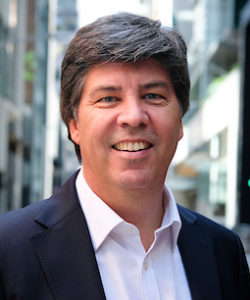A different take on how risk specialists can potentially build a fee-based element into their advice proposition is the Riskinfo Story of the Week. Not everyone necessarily supports this proposition, but the perspectives outlined here may nonetheless resonate for a few or for many risk specialist and generalist advisers…
Thinking outside a ‘standard advice proposition’ may open new opportunities for risk specialist advisers to develop a more sustainable business proposition, which includes the prospect of charging fees.
So says former specialist risk and superannuation adviser, Marc Bineham, who has transitioned to delivering coaching and consulting services to financial advice business owners and their staff.

Leveraging the success of his award-winning book, The Money Sandwich, Bineham told Riskinfo that specialist risk advice practitioners – together with generalist advisers – can be at the centre of a proposition which would allow them to expand the nature of their advice offer to accommodate both the parents and children of their existing clients.
Bineham’s challenge to the many advisers who count pre-retirees in their client base numbers – the so-called sandwich generation – is for them to think outside what he calls the standard risk profile box to consider helping those clients in other areas of their lives which may be ‘pain points’ for them.
Defining the sandwich generation as those pre-retirees who have adult children on one side and elderly parents on the other, Bineham – who also served as AFA National President towards the end of his advice career – urges other advisers and their support staff to consider this as an opportunity to develop and expand their service offer.
He details a number of scenarios which he says can lead to advisers – generalists as well as risk specialists – offering a fee-based service that encompasses helping all three generations:
Adult children
“For their adult children they need to get their super invested correctly (and not be in a balanced fund); they need to be taught about debt, and they need trauma cover at level premiums – paid for by their parents until marriage.”
Elderly parents
“They can help their elderly parents as they will need aged care and estate planning help, and this generation in the main will not talk to their middle-aged children – who are your clients – and so advisers can provide third-party help in this area.”
The client
“For themselves, they see retirement around the corner and are just focusing on the money part, when retirement and this next stage of life brings a whole new set of challenges that most are not prepared for.”
Riskies are usually the best on relationships
Bineham says advisers can be a significant help in these areas “…and your middle-aged (50s and 60s) clients will pay a fee to have this all done for them.” He adds that for specialist risk advisers in particular, “Riskies are usually the best on relationships, and so especially when serving the needs of the elderly, they can a do a lot of great relationship work for a fee, even if it doesn’t involve delivering insurance solutions.”
While he appreciates this intergenerational service offer may not reflect the preferences or skill sets of existing advice propositions, Bineham (who is actively coaching advisers and their staff in this area) challenges the adviser and their business to consider what they are ultimately seeking, arguing his sandwich generation advice concept can deliver less red tape, attract more high net wealth clients and demonstrate great value under a fee-based model when insurance solutions don’t form a part of the advice solution.





Huh?
At the risk of going over old ground and being labeled a dinosaur, it is
still difficult to understand how we got here. While new opportunities
such as this are great in theory I think that the best opportunity for
risk advisers is to create an environment where they are actually able
to do the things that they are good at and get adequately rewarded for
the work that they do. IMO risk advisers are good at helping clients
determine what insurance needs they have, provide potential solutions
and let the clients work out what risk they would like to carry and
transfer the rest to an insurance company. Simple as that, everything
else is just noise and until such an environment is created, irrespective of how many other opportunities present, think tanks are formed, etc the risk advice and life industry will continue to struggle..
Exactly, keeping it straightforward and simple without complicating it. Then the client can understand what they have and what they need.
You act in their best interest and by doing that you are acting in yours.
Except that commission models inherently don’t work that way. For example, selling coverage that a client does not need: great for the adviser, not so great for the client.
Comments are closed.